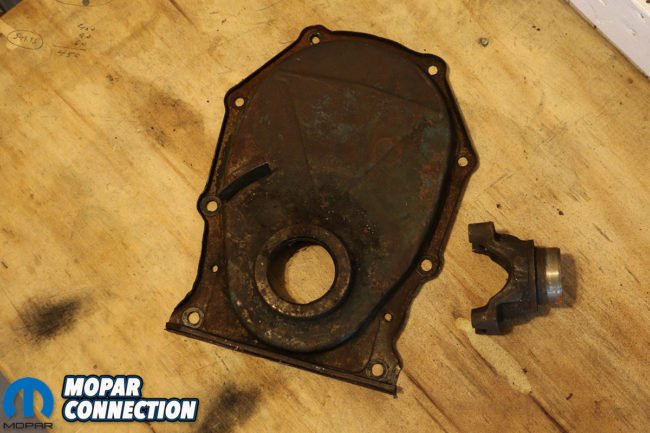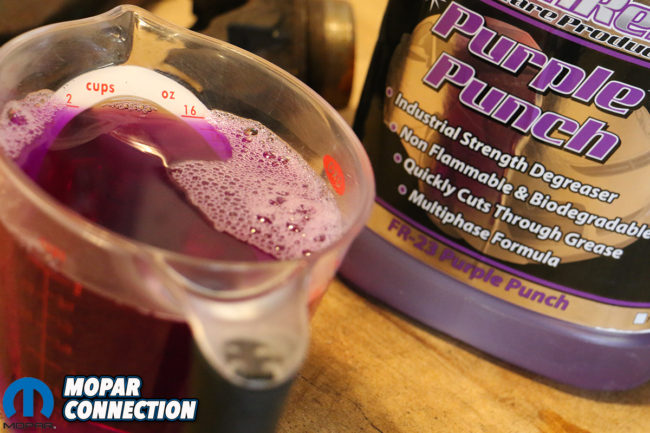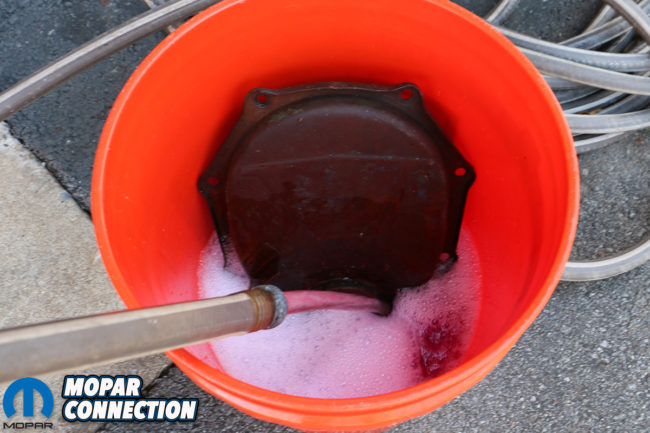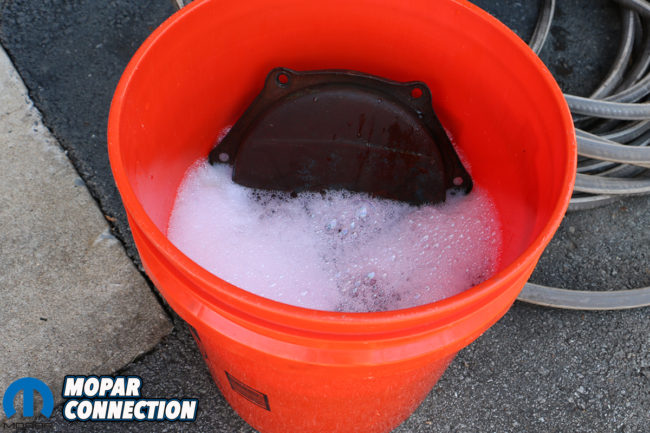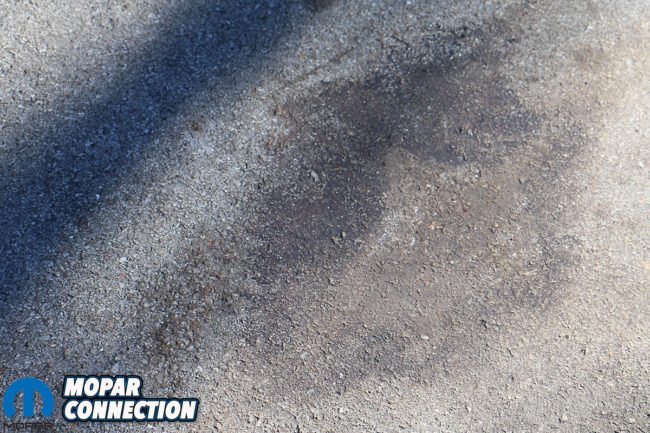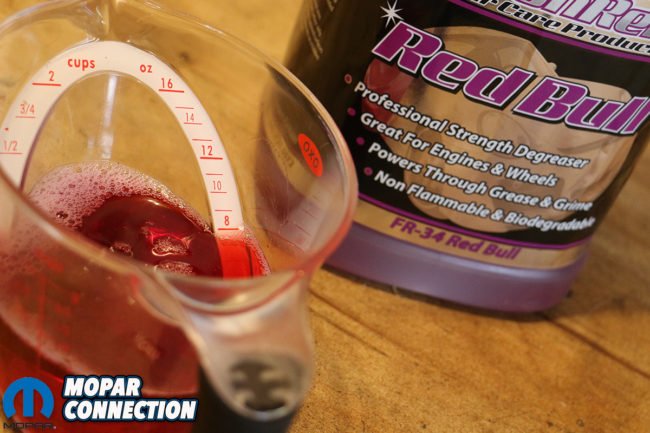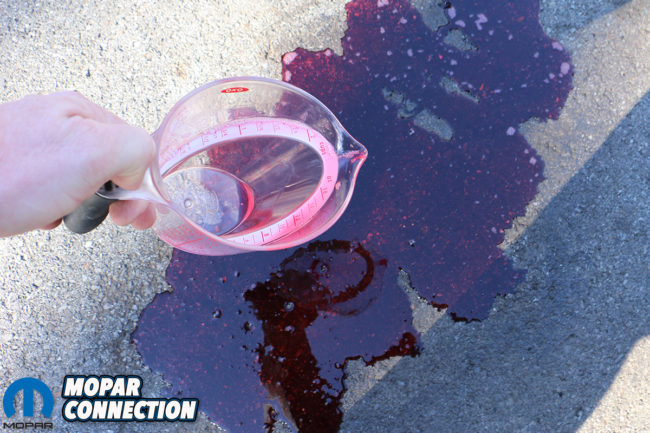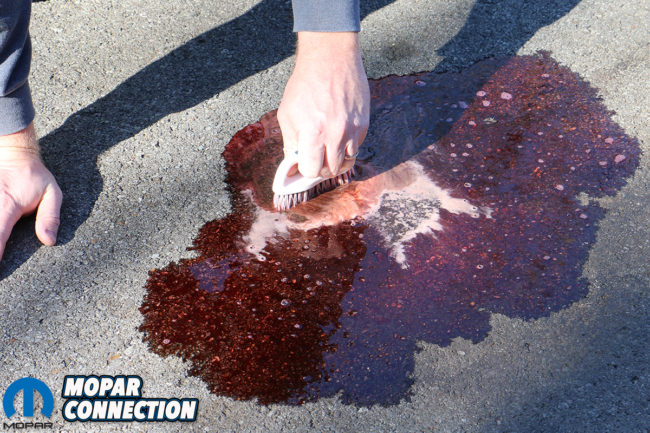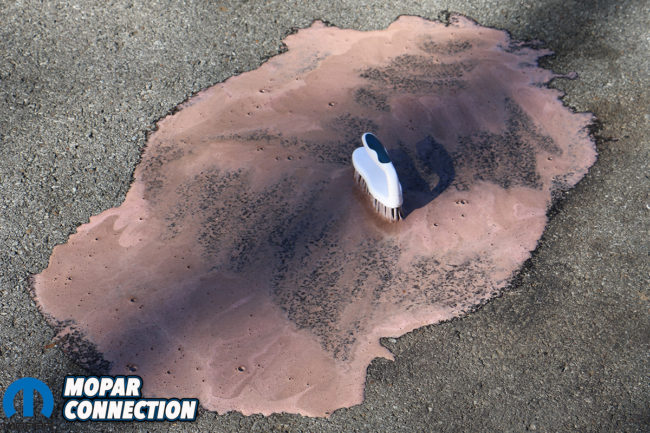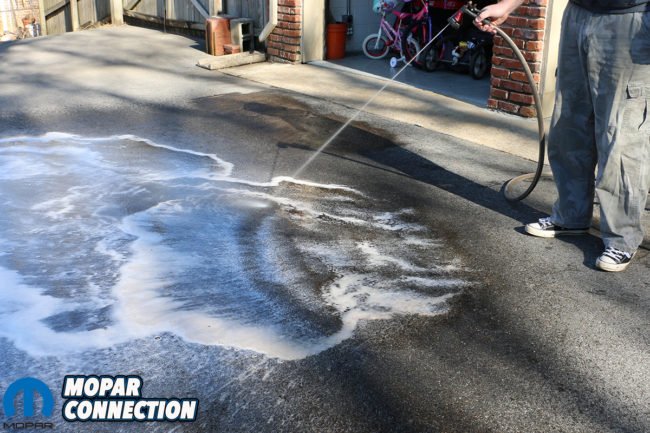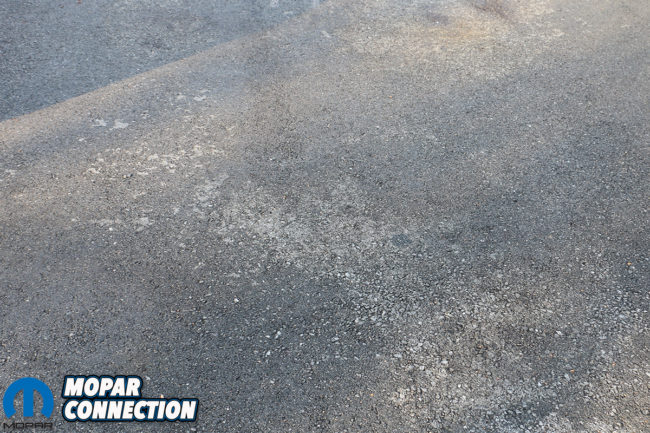
[Much of this article was previously published at Mopar Connection Magazine, sister publication of The Watercraft Journal. Some portions have been edited to fit accordingly. The original version can be read HERE.]
“Never trust a skinny chef” were the words of wisdom once shared to me by former Mopar Muscle editor Randy Bolig some dozen years ago while serving as a lowly Associated Editor. The philosophy made sense, and by an extent, the same could be said for anyone whose tools and garage are just a little too clean. Even the floors of the most meticulous mechanic are scuffed and discolored, if not you know that work simply isn’t being done there. Therein lies the struggle in keeping a clean shop. Working on our toys can be messy work, so how do you keep it clean?
We chatted up our friends at Finish Renu Car Care Products, [parent company of Jet Renu, who you all know -Ed.] who pushed us to test their products further than what we had in mind. Our initial plan was to document before-and-after shots of some of our dingiest tools and our epoxy-coated garage floor after giving it the ol’ Finish Renu treatment. That all changed when Finish Renu’s President and resident chemical engineer Jim Moreno asked, “How’s your driveway?” Like most of you, the asphalt outside of our garage was littered with oil stains, grease spots and even a large bleached patch where a gas can had tipped over.
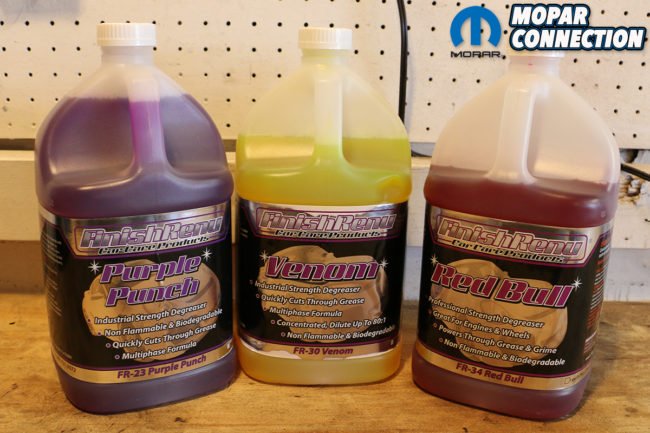
Above: Finish Renu Car Care Products offers a full line of degreasers, and sent us samples of their Purple Punch, Venom and Red Bull cleansers to put to the test.
Above: For our first test, we fished out some pretty grimy parts from our parts bin. Because Purple Punch has a recommended 4:1 ratio, meaning 16 ounces per gallon, we measured out 48 ounces of Purple Punch to our 3-gallons of water.
“We can fix that,” Moreno promised. “Let me send you some stuff.” The offer was too tempting to pass up. We regularly put Finish Renu’s bright yellow “Venom” degreaser to work in our shop, diluting it to a 64:1 dilution and carrying it in a spray bottle. Venom, as with all of Finish Renu’s degreasers, is non-flammable and biodegradable, that means it’s environmentally friendly, won’t murder your lawn and won’t infuriate your nosy neighbors when you hose off your driveway. Just in the past year, we’ve found Venom alone out performs most acidic-style cleaners, solvent and other water-soluble degreasers. But how about the rest of the lineup?
Finish Renu offers five different grades of degreaser: Burst, Purple Punch, Venom, Heat and Red Bull. Moreno quickly shipped over gallons of Purple Punch, Venom (because he knew we loved it), and Red Bull. ‘Punch was new to us, and is one of Finish Renu’s heavy duty degreasers specially formulated with special surfactants, wetting agents, emulsifiers and detergents to make it an outstanding concentrated degreaser. Priced at $12 a gallon, Purple Punch can do a long way as a diluted spray, but really does the most work when cut a little on the concentrated side. Moreno did caution us about Venom, Heat and Purple Punch, stating:
Above: We poured in our Purple Punch, dropped in our parts and filled in another 3 gallons of water before we let the degreaser do its work.
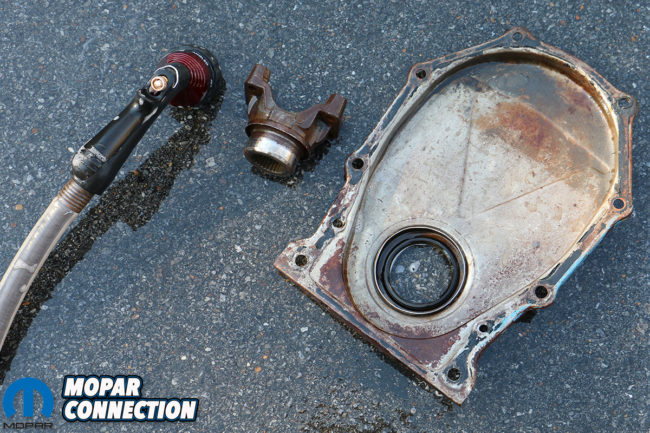
Above: After a few hours of soaking you can see the difference Finish Renu’s Purple Punch made on the inside of the timing cover. Sure, it can’t undue the damage of rust, but look at how it ate away at the grime and caked-on grease! The yoke is grime-free as well.
“These degreasers are traditional caustic/butyl-based cleaners and are corrosive. These degreasers react quicker than Red Bull but can have a negative reaction to metals and painted surfaces if not diluted properly. These degreasers are spray-on and rinse-off style products. They can leave a white caustic residue if not rinsed thoroughly or if they are allowed to dry. Believe it or not but these degreasers are most common in the industry because the end user thinks if it smells bad, burns your hands and works fast it must be good!” For most applications, Moreno suggests dilutions: engines (4:1 – 9:1); heavy equipment (4:1 – 9:10; concrete (9:1 – heavy stains – 5:1); asphalt (9:1); general purpose cleaning (15:1 – 30:1).
True to his word, the experiment we conducted on a very greasy timing chain cover and a very filthy rear pinion yoke followed as per his description. Our blend was at the recommended 4:1 ratio, meaning 16 ounces per gallon. With a handy 5-gallon bucket and a measuring cup from the kitchen, we filled our bucket 3-gallons high and with 48 ounces of Purple Punch. We let both the yoke and cover soak for a few hours before thoroughly hosing them off. In the pictures, you’ll see that we left a quarter of the cover untouched to show the efficacy of Purple Punch on built-up and baked-on grease, grime and other contaminants. The yoke came out completely grime-free, and even built up some of that white residue Moreno warned about.
Far Left: One of our most set-in stains from a leaky oil pan on our daily driver. Left and Right Center: We measured out 8 ounces and poured it directly onto the stain. Far right: We began scrubbing with a stiff bristled brush the Red Bull into the asphalt.
Far left: With the smaller stain scrubbed, we let it sit. Center left: For the larger areas we used a hard bristle push broom to work the Red Bull degreaser into the driveway. Center right: After several hours, we began the process of spraying off the now discolored cleanser, using the broom to scrub a little more as we went. Far right: Although not perfect, the ugliest of our stains was heavily removed. We think maybe a second round of scrubbing would eliminate much of the remaining evidence.
When it came to treating our driveway, Moreno had very different recommendations: “Red Bull likes dwell time, so the longer it sits the better the surfactants emulsify the grease and oil. Red Bull (priced at $15 a gallon) is ideal for heavy equipment, concrete, asphalt, engines, under carriages, recirculating parts, washers and floor machines.” His recommended dilutions are as follows: engines (2:1 – 4:1); parts washers (20:1); floor machines (30:1); heavy equipment (2:1 – 5:1); concrete (9:1 – heavy stains – 5:1); asphalt (9:1); general purpose cleaning (15:1 – 30:1); also noting that all dilutions are recommendations only and all dilutions are using a pressure washer or machine. Using a water hose use or simple rinsing may require the product to be used stronger.
Considering we didn’t have a pressure washer handy (and only a “jet” setting on a traditional garden hose nozzle), we opted to “go nuclear” and apply Red Bull straight onto the driveway’s worst spots. On the smaller and/or more concentrated stains we used a hard bristled brush and scrubbed the degreaser into the stain. For larger areas, we used a large, hard bristled push broom. We too, gave Red Bull several hours to set in, almost to the point of drying before hosing it off, making sure to scrub a little more as the solvent washed away. Once dried, we noticed that Red Bull did an amazing job of knocking off much of the stain, but realized that it would take one or two more bouts to really clear off some of our more stubborn stains.



